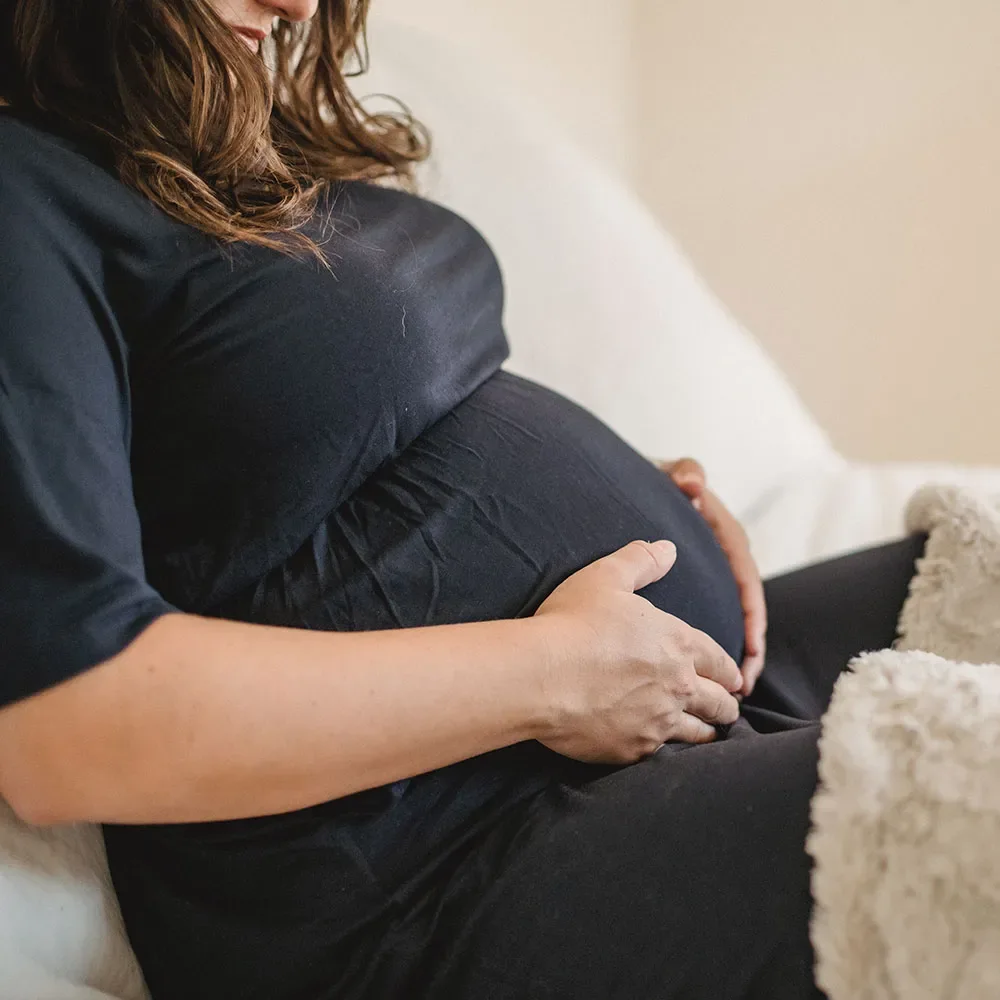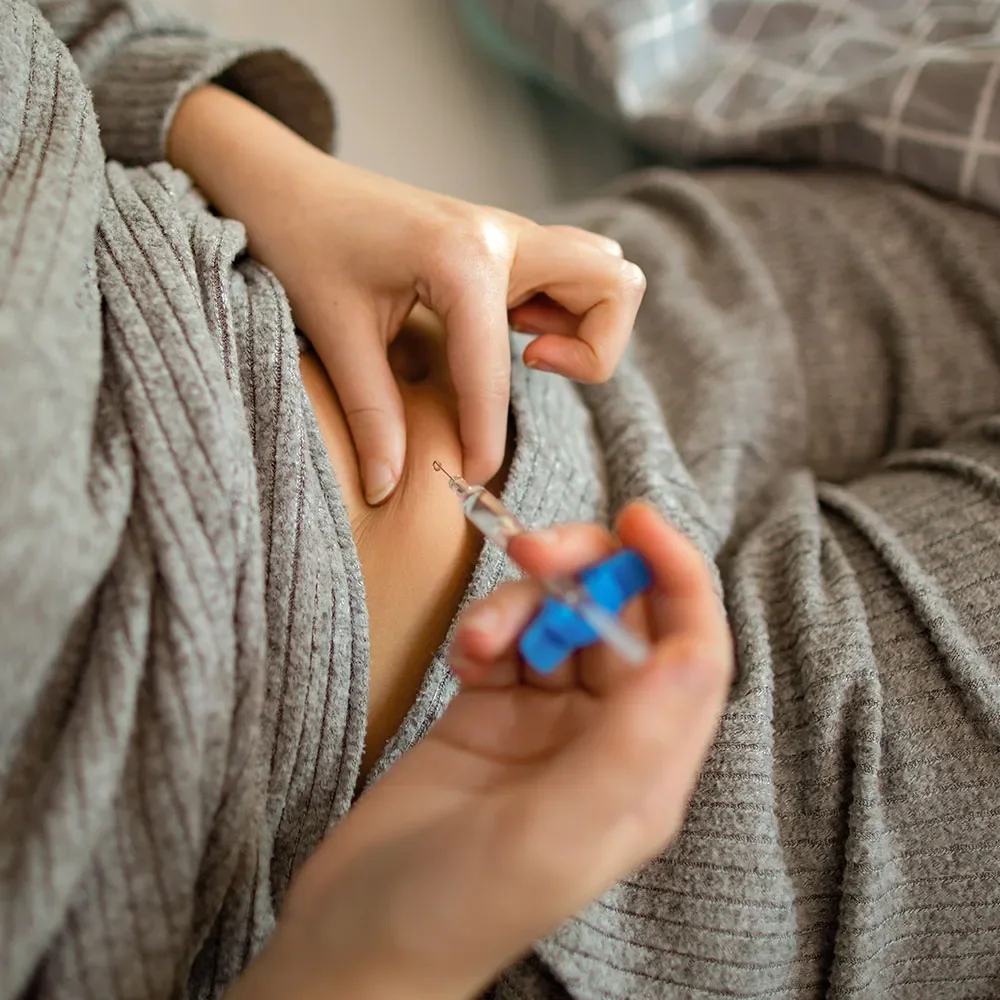Here's what we'll cover
Here's what we'll cover
Here's what we'll cover
Human papillomavirus (HPV) is the most common sexually transmitted infection (STI), and most sexually active people become infected at some point in their lives. According to the Centers for Disease Control and Prevention (CDC), currently, approximately 79 million Americans have HPV with about 14 million new cases each year (CDC, 2017). HPV is an STI that is spread by oral, anal, or vaginal sex. You can also get HPV through non-sexual skin-to-skin contact if you have a cut or small tear in your skin.
There are more than 100 different types of HPV, and at least 40 are known to affect the genital area. HPV is usually harmless and resolves on its own. However, some strains have been linked to cervical cancer and other cancers, others to genital warts, and still others to common warts and plantar warts.
Who has HPV?
It is estimated that more than 80% of sexually active people will get HPV in their lifetime (NFID, 2019). Of the 79 million people in the U.S. who are infected with HPV, most of them are men and women in their late teens and early 20s (CDC, 2017). Sexual partners who have been together for a long time may share HPV, and it is nearly impossible to determine how or when the infection originated. If you have HPV, it does not necessarily mean that your partner has been having sex outside of your relationship.
What are the symptoms of HPV?
In most cases, there are no symptoms, and people don’t realize that they have HPV, making its spread more likely. Sometimes symptoms don’t develop until months or years after infection, so it is difficult for people to know at what point they were infected. Some symptoms don’t appear until serious health problems arise. The symptoms of HPV are different depending on the strain of the virus; the most common symptoms are genital warts, common warts, plantar warts, and flat warts. HPV gets into the skin and then causes the outer cells of the skin layer to multiply, forming a wart. Not everyone gets warts as some people’s immune systems are better at fighting off HPV than others.
Genital warts are a manifestation of genital HPV infection. They are bumps that grow in the genital area of both men and women. They can be small or large, raised or flat, or shaped like a cauliflower. Warts can sometimes appear in clusters. They are not usually painful, but they may itch, bleed, or feel somewhat tender. They may grow or shrink and may return after treatment. Genital warts appear on the penis, scrotum, around the anus in men, and on the vulva, cervix, vagina, or around the anus in women. According to the CDC, about 1 in 100 sexually active adults have genital warts at any given time (CDC, 2017). Common warts usually appear on the hands and fingers; they are raised bumps that feel rough to the touch and are not typically painful. Plantar warts are flesh-colored or light brown hard growths sometimes with black dots that are small clotted blood vessels. They appear on the soles (bottoms) of your feet; they can be uncomfortable. Flat warts are flat, raised lesions that can form anywhere. They usually develop in areas prone to skin injuries, like razor nicks and cuts. Not surprisingly, flat warts are often seen in beard areas of men and on women’s legs. Teens and children get these types of warts more often than adults and most often on the face.
HPV is still contagious even if there are no warts that you can see. However, there is no evidence that HPV is spread by touching hard surfaces, like a doorknob or toilet seat, or by sharing linens or towels.
How to test for HPV?
There is no routine test to tell if you have HPV. Most people don’t know that they have it until they develop some sort of health problem from it. Sometimes your healthcare provider can diagnose you based on any warts you may have. If you have a suspicious or hard-to-see skin lesion, your provider can apply a vinegar solution to the area; vinegar makes cells infected with HPV turn white.
For women, your provider may perform a Pap test (aka Pap smear). To do this, you will need to lie back on the exam table with your feet in supports (stirrups). Your provider will use an instrument, called a speculum, to gently open the vagina to see the cervix. Samples of cervical cells are collected and sent for testing to look for any abnormal cells that might suggest the presence of HPV. The Pap test does not explicitly test for HPV; if abnormalities are seen in the cells, then DNA testing for HPV is done. Specifically, the cervical cells are checked for precancerous changes (cervical dysplasia) that are most likely due to HPV.
There is another method of testing on the horizon for women in the United States — self-sampling. Self-sampling involves you taking a cervical swab and sending the cell samples for HPV testing, rather than having your provider collect them. It is being used and studied in industrialized countries all over the world. So far, self-sampling appears to be as accurate as provider-collected sampling. While this is not standard testing in the U.S., it may become more available in the future, thereby increasing a woman’s access to HPV testing and cervical cancer screening.
There are different options for cervical testing, and you should discuss which one is right for you with your healthcare provider. You may get tested with the Pap test alone, a combination of Pap test and HPV DNA test (co-test), or just the HPV test.
Which strains of HPV cause genital warts?
HPV strains 6 and 11 cause approximately 90% of all genital warts. HPV strains that cause genital warts are not the same ones that cause cancer (CDC, 2018-a).
Which strains of HPV lead to cancer?
While most strains of HPV are relatively benign, some lead to cancer and other illnesses. These are referred to as high-risk HPV strains as they are associated with serious diseases; they include strains 16, 18, 31, 33, 45, 52, and 58. The specific types of cancer that have been linked to HPV infection are cervical cancer, oropharyngeal (mouth and throat) cancer, and penile cancer. Cervical cancer is the most common HPV-associated cancer in women (CDC, 2019-b). HPV is believed to be responsible for 90% of all cervical cancers, usually many years after the initial infection (CDC, 2019-b). According to the CDC, nearly 12,000 women living in the U.S. will be diagnosed with cervical cancer each year. Even with screening and treatment, more than 4,000 women die from cervical cancer (CDC, 2017). Sixty-six percent of cervical cancers are associated with HPV types 16 and 18; another 15% are linked to HPV types 31, 33, 45, 52, and 58 (Petrosky, 2015). Since cervical cancer does not cause symptoms until it is in advanced stages, and the prevalence of HPV is so high, screening is crucial.
The U.S. Preventive Services Task Force (USPSTF) cervical cancer screening guidelines for people who have not been diagnosed with cervical cancer or a high-grade lesion are (Moyer, 2012):
Starting at age 21, women should begin screening with the Pap test and repeat testing every three years.
Women aged 30-65 have three options available for screening: Pap test every three years, co-testing with Pap and HPV DNA test every five years, or HPV DNA test alone every five years
Oral or oropharyngeal cancers are the most common HPV-associated cancer in men (CDC, 2019-a). These cancers affect the back of the throat, including the base of the tongue and tonsils. Traditionally, people thought that most of these cancers were caused by tobacco and alcohol. However, recent data has shown that 60-70% of oropharyngeal cancers are linked to HPV infection; a combination of factors is the most likely cause of these cancers (CDC, 2019-b). The CDC estimates that about 10% of men and 3.6% of women have oral HPV (CDC, 2018-b). Oral HPV infection is also more common as we get older and can be transmitted by oral sex, among other pathways. Oropharyngeal cancer is caused mainly by HPV type 16, similar to cervical cancer. At any one time, approximately 26 million Americans have oral HPV, with 2,600 of these being type 16 (OCF, 2019).
Penile cancer is another disease associated with HPV infection; approximately 50% of penile cancers are caused by HPV (ACS, 2018). The American Cancer Society estimates that penile cancer accounted for less than 1% of all cancers in the U.S. in 2018 (ACS, 2019).
Risk factors for HPV infection
HPV is common; it can spread via contact with infected skin or sexual activity. Several risk factors make it more likely for you to get an HPV infection.
Age– genital warts occur most often in sexually active young adults in their teens and early 20s; common warts appear more frequently in children.
Multiple sexual partners– as with any STI, the more sexual partners you have, the more likely you are to get HPV.
Weak immune systems– conditions like HIV/AIDS and drugs that weaken the immune system can decrease your immune system’s ability to fight off an HPV infection.
Damaged skin– skin that is punctured or injured allows for the HPV to get past the usual skin barriers and increases the risk of developing warts.
Personal contact- if you come into contact with someone else’s warts, you can get infected.
How can I lower my HPV risk?
HPV is everywhere, and with so many different types of the virus, it is difficult to prevent infections completely. With regard to plantar warts, common warts, and flat warts the best way to avoid infection is to wash your hands regularly and keep your skin healthy and moisturized. When shaving, use a sharp razor to prevent nicks and cuts. Avoid contact with other people’s skin warts. If you develop a wart, avoid the spread of the infection by not scratching it, biting your nails, or doing things that will weaken your skin’s integrity.There are several things you can do to decrease your risk of developing genital warts and other HPV-associated genital conditions (CDC, 2017):
Get the HPV vaccine if appropriate.
Practice safe sex and use condoms. Be aware- wearing a condom does not provide 100% protection against infection as HPV may be present in areas not covered by a condom.
Limit the number of your sexual partners
Maintain a mutually monogamous sexual relationship
Treatment options for HPV
For most people with a healthy immune system, HPV infections are cleared from the body and go away on their own within a few years. The bad news is that there is no cure for the virus. The treatments available are mainly to treat the health effects of HPV, such as warts, and include:
If you are pregnant and have HPV genital warts that require treatment, your healthcare provider may decide to postpone treatment. You can learn more about pregnancy and HPV by clicking here.Your provider will discuss the risks and benefits of the different treatments and help you decide which treatment option is best for you.
Does HPV go away?
Yes, most cases of HPV go away on their own within a few years. Many never cause any problems at all. Some HPV infections that persist can lead to various cancers.
HPV vaccine
The FDA has approved three HPV vaccines, most recently a 9-valent vaccine (Gardasil 9, by Merck & Co, Inc) that is effective against nine different types of HPV: types 6, 11, 16, 18, 31, 33, 45, 52, and 58. These vaccines are both safe and effective.Currently, the HPV vaccine recommendations are as follows (CDC, 2016):
Routine HPV vaccination for girls and boys should start at age 11 or 12, but vaccination can be started as early as age 9.
Teens and young women can get the HPV vaccine up to 27 years of age, and young men should get the HPV vaccine until they are 22 years old.
Men who have sex with men or people with weak immune systems, such as people with HIV, should get the vaccine anytime before age 26
Transgender individuals should get the HPV vaccine up to 27 years of age.
Shared clinical decision-making regarding HPV vaccination is recommended for some unvaccinated adults 27-45 years of age.
Since the widespread availability of the HPV vaccine, infections with HPV types that cause most of the HPV cancers and genital warts have dropped over 70 percent (CDC, 2019-c). Also, among women who have received the vaccine, the number of cervical precancers caused by HPV types 16 and 18 has dropped by 40 percent.
DISCLAIMER
If you have any medical questions or concerns, please talk to your healthcare provider. The articles on Health Guide are underpinned by peer-reviewed research and information drawn from medical societies and governmental agencies. However, they are not a substitute for professional medical advice, diagnosis, or treatment.
References
American Cancer Society (ACS). (2018). Risk Factors for Penile Cancer. Retrieved September 5, 2019 from https://www.cancer.org/cancer/penile-cancer/causes-risks-prevention/risk-factors.html
American Cancer Society (ACS). (2019). Key Statistics for Penile Cancer. Retrieved September 5, 2019 from https://www.cancer.org/cancer/penile-cancer/about/key-statistics.html
Centers for Disease Control and Prevention (CDC). (2016). What Everyone Should Know. Retrieved September 5, 2019 from https://www.cdc.gov/vaccines/vpd/hpv/public/index.html
Centers for Disease Control and Prevention (CDC). (2017). Genital Hpv Infection - Cdc Fact Sheet. Genital HPV Infection - CDC Fact Sheet. Retrieved September 5, 2019 from https://www.cdc.gov/std/hpv/HPV-FS-July-2017.pdf
Centers for Disease Control and Prevention (CDC). (2018-a). Other Sexually Transmitted Diseases - 2017 Sexually Transmitted Diseases Surveillance. Retrieved September 5, 2019 from https://www.cdc.gov/std/stats17/other.htm
Centers for Disease Control and Prevention (CDC). (2018-b). HPV and Oropharyngeal Cancer. Retrieved September 5, 2019 from https://www.cdc.gov/cancer/hpv/basic_info/hpv_oropharyngeal.htm
Centers for Disease Control and Prevention (CDC). (2019-a). How Many Cancers Are Linked with HPV Each Year? Retrieved September 5, 2019 from https://www.cdc.gov/cancer/hpv/statistics/cases.htm
Centers for Disease Control and Prevention (CDC). (2019-c). Vaccinating Boys and Girls Against HPV. Retrieved September 5, 2019 from https://www.cdc.gov/hpv/parents/vaccine.html
Centers for Disease Control and Prevention (CDC). (2019-b). HPV-Associated Cancer Statistics. Retrieved September 5, 2019 from https://www.cdc.gov/cancer/hpv/statistics/index.htm
Gupta, S., Palmer, C., Bik, E. M., Cardenas, J. P., Nuñez, H., Kraal, L.,et al. (2018). Self-Sampling for Human Papillomavirus Testing: Increased Cervical Cancer Screening Participation and Incorporation in International Screening Programs. Frontiers in Public Health, 6. doi: 10.3389/fpubh.2018.00077. Retrieved from https://www.frontiersin.org/articles/10.3389/fpubh.2018.00077/full
Moyer, V. A. (2012). Screening for Cervical Cancer: U.S. Preventive Services Task Force Recommendation Statement. Annals of Internal Medicine, 156(12), 880. doi: 10.7326/0003-4819-156-12-201206190-00424. Retrieved from https://pubmed.ncbi.nlm.nih.gov/22711081/
National Foundation for Infectious Disease. (2019). Facts About HPV for Adults. Retrieved September 5, 2019 from https://www.nfid.org/infectious-diseases/facts-about-human-papillomavirus-hpv-for-adults/
Petrosky, E., Bocchini, J., & Hariri, S. (2015). Use of 9-Valent Human Papillomavirus (HPV) Vaccine: Updated HPV Vaccination Recommendations of the Advisory Committee on Immunization Practices. Retrieved September , 2019 from https://www.cdc.gov/mmwr/preview/mmwrhtml/mm6411a3.htm
The Oral Cancer Foundation. (2019). HPV / Oral Cancer Facts. Retrieved September 5, 2019 from https://oralcancerfoundation.org/understanding/hpv/hpv-oral-cancer-facts/












